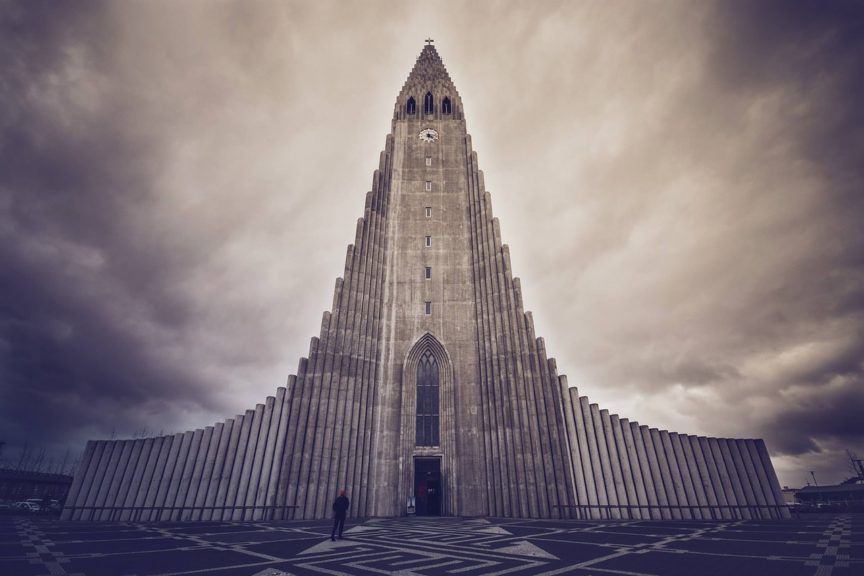I will always remember the dinner I had with a well known Christian leader many years ago. One of the other people at dinner asked him about his observations of the Church in Canada. His response was not what I wanted to hear: “there are a lot of churches who should just die.” I was stunned by how blunt his assessment was. There was no malice in his answer, but there was a sense of discouragement.
[In 2018] Christianity Today posted an interview with Eugene Cho about his decision to resign from the church he helped launch in 2001. Quest Church is described as “an urban, multigenerational, and multiethnic church in Seattle striving to be an incarnational presence in a postmodern and post-church culture.”What struck me about the interview with Cho are the following two points he makes about church culture:
“Over the years I’ve told people two things consistently. First, Quest Church will die someday… There will come a day when Quest Church will not be around. While we honor and love our local church, ultimately we need a theology of the greater kingdom. Ten years ago, a 65-year-old church closed its doors and gave us its land and building, worth seven million dollars, for free. That’s the kind of kingdom mindset I want Quest Church to have.
“The second message I’ve told people is this: “At some point I’m going to resign.” People have heard me say that in my sermons for 15 years. So I think, at some level, we’ve all been preparing for this for a long time.”
What a fascinating (and too often unique) perspective for a church to have – a theology of the greater kingdom.
These thoughts from Cho were fresh in my mind when I read another article from Ed Stetzer called “Some Churches Should Die and Be Reborn”. Suddenly, the dinner conversation from many years ago came flooding back to my mind. (Note: it was not Ed Stetzer who made the original comment about Canadian churches)
When I speak with men across Canada, there is often a mixture of apathy, frustration, or discouragement about their local church. It is rare when men are talking to me about how much they love the church they are part of and how God is at work in and through their church. I fully recognize this is not necessarily a fair barometer because these men may very well be a big part of the problem for why the church is not thriving. Still, I think there are times we need to pause and look in the mirror.
Should your church die? I don’t know the answer to this question, but here are some questions/thoughts to consider:
1. If it’s your church – then maybe it should die.
If your idea of church is “this is my church and I just wish people would stop trying to … (fill in the blank)” – then you have missed the point. The church belongs to Jesus. It’s not your church – it’s His and He gets to set the agenda. Of course, everyone will admit the church belongs to Jesus, but too often we act like it’s ours. Do we live with the kingdom of God mindset described by Cho, or is it all about ourselves?
2. Would anyone in your community miss you if you did not exist?
As Jesus’ church, we are called to be salt and light in the world. We are told to love our neighbours, and make disciples of Jesus. If our neighbours wouldn’t even notice our absence, then should this expression of the church continue to exist?
3. Would Jesus want to gather with your church?
Jesus is described in John 1:14 as being “full of grace and truth.” The church should be an expression of this. Yes, I know we will not do it perfectly, but this should be our aim. If your church is only grace with no real focus on the truth of God’s word – maybe it should die. If your church is only truth with no real sense of grace for broken, sinful people, well, you know.
4. Are you a club or a church?
Church has become many people’s social club/network – and that’s it. Let’s be honest, there are easier and cheaper ways to be part of a club than to be part of a church. Church was never meant to be a club, we are the Body of Christ. “We are his workmanship, created in Christ Jesus for good works which God prepared ahead of time for us to do.” (Ephesians 2:10). We are sent into the world to make disciples of Jesus. Reproducing, multiplication, and passing the message on to younger people and those who don’t yet believe is core to our mandate.
Conclusion
The death of a church is not the death of the church. The people of God will still be in your community. We are not talking about the end of Christians, we are talking about the end of certain organizations, structures, and expressions of faith. Something new will need to replace it – not because the old was bad but because it may just be time for something new. The mission of Jesus must go forward.
Please do not read this article and become critical of your own church. Ask yourself a deeper question. Since the church is the people – you may be the problem. The best solution is for the followers of Jesus to get serious about being the church. Jesus loves His Bride. He sacrificed Himself for her. If we love what Jesus loves, then we will love the church and want her to be everything Jesus dreams for her to be – not what we want her to be.
Not every church should die. God is working in powerful ways in and through many churches across the nation. I know there are incredible, faithful local churches who are doing good kingdom work. They are thriving and people are becoming and growing as disciples of Jesus. You may be in one of those churches, and I would love to hear from you in the comments about what you see God doing.
About


